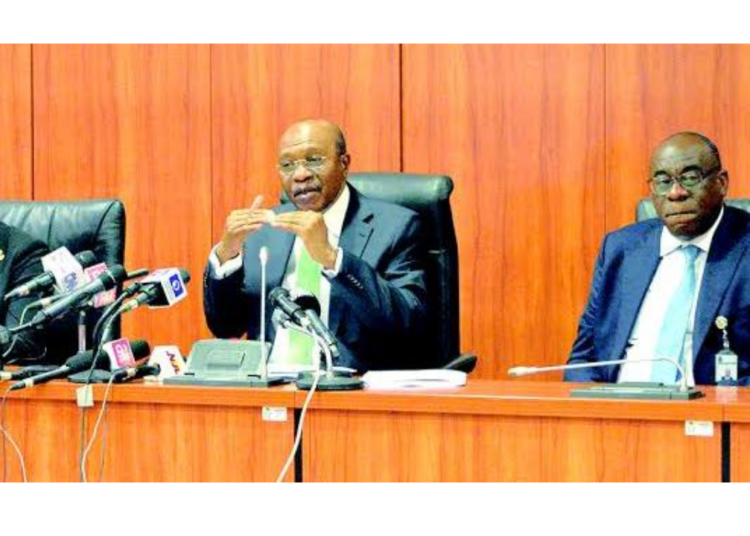Personal statements of members of the Monetary Policy Committee (MPC) of the Central Bank of Nigeria (CBN), at the last meeting held in January this year, was released last week showing the growing concerns of the policy makers on the continuous rising inflation in the country.
This is even as they affirmed the stability of the Nigerian financial system.
The personal statements of the members of the MPC released last week revealed that most of the members of the monetary policy making body remain concerned about the rate at which prices are rising in the country.
Inflation rate, on the other hand, rose further in January this year after the MPC further raised benchmark interest rate.
Although inflation moderated in December, data from the National Bureau of Statistics (NBS) showed that the rate rose from 21.34 per cent in December last year to 21.82 per cent in January. In its drive to curb the rising trend, the MPC had, at its last meeting which was held in January, further raised benchmark interest rate to 17.5 per cent from 16.5 per cent.
In his statement, a member of the MPC, Adenikinju Festus noted that, the fall in inflation in December 2022 suggested that the Nigerian public have confidence by the actions of the monetary authority to rein in inflation. However, CBN’s deputy governor, Corporate Services, Adamu Lamtek said, despite the moderation, inflation remains the dominant threat to macroeconomic stability in the short-to medium-term.
Deputy governor, Financial Stability, Aisha Ahmad, similarly noted that, high inflation continues to be a major challenge, despite a cumulative 500bps policy rate hike over 2022 by the monetary authority.
“In line with the tight monetary policy stance since May last year, market interest rates begun to rise while the pace of development finance interventions by the Bank has slowed to curb monetary induced inflation. Yet, headline inflation (year-on-year) remains sticky, falling marginally to 21.34 per cent in December 2022 from 21.47 per cent in November 2022,” she stressed.
She, however, noted that, the financial system has provided significant support for needed domestic economic resilience amidst global shocks and remained strong. According to her, data from the apex bank showed that stability in broad soundness indicators and an unprecedented improvement in asset quality, even as credit to the private sector continued to grow.
Capital adequacy, as of December 2022, was robust at 13.83 per cent, 383 basis points above the regulatory minimum of 10 per cent. To him, “industry liquidity was also strong at 44.10 per cent over the same period and supported by significant cash reserve requirement buffers available to provide liquidity backstops, should banks require it.”
Key industry aggregates also continued their year-on-year upward trajectory with total assets rising to N73.59 trillion in December 2022 from N59.24 trillion in December 2021, while total deposits rose to N45.50trillion from N38.42trillion over the same period. Total credit also increased by N5.14 trillion between end December 2021 and end-December 2022 with significant growth in credit to manufacturing, General commerce and Oil & Gas sectors. This impressive increase was achieved amidst continued decline in non-performing loans ratio from 4.90 per cent in December 2021 to 4.20 per cent in December 2022.
In his personal statement, the deputy governor, Economic Policy at the CBN, Dr. Kingsley Obiora noted that, the banking system remains sound, safe, and resilient. “Industry Non- performing Loans decreased from 4.9 per cent in December 2021 to 4.2 per cent in December 2022, which was below the maximum prudential requirement of 5.0 per cent. The decline in NPLs was attributable to write-offs, restructuring of facilities, Global Standing Instruction (GSI) and sound credit risk management by banks.
“Total assets of the banking industry grew by N14.36 trillion or 24.24 per cent from N59.24 trillion in December 2021 to N73.59 trillion in December 2022, driven by balances with CBN/banks, investments, and credit expansion to the real sector.
“As a result, total gross credit increased by N5.14 trillion or 20.93 per cent between the end of December 2021 and December 2022, from N24.57 trillion to N29.72 trillion, due to the increase in the industry funding base as well as the CBN’s directive on LDR, which has encouraged banks to increase lending to the real sector of the economy, and business strategy and competition. The increase in credit to the key sectors of the economy is expected to bolster aggregate demand and promote economic growth, job creation, and poverty alleviation,” had stressed.
Meanwhile, Ahmad noted that, “despite sustained rate hikes by the monetary authority since May 2022, liquidity levels in the economy have not altered sufficiently. Annualized growth rates of key monetary aggregates exceeded annual targets in 2022, while real interest rates remain negative in view of the persistently high inflation.”
The rather slow transition in these indicators is worrisome even though monetary policy instruments impact the economy with a lag, which in the case of Nigeria, could stretch up to eight quarters.
less, sustaining the tightening stance, in my view, is important to over time reverse the trend of domestic prices – the key remit of the monetary authority – given its adverse implications for real incomes, threat to output growth, and overall economic activities.





